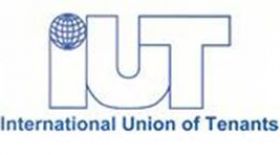About time to stop a European wave of evictions?
The stress test of the social cohesion in the EU
Brussels, 18 December 2013 | Published in Economy
Spain, Ireland and now Greece… The housing bubble, created in the first decade of the 21st century keeps bursting devastating countries and threatening the European project as a whole. The European institutions did not oppose the speculation over a fundamental right such as housing the banks initiated from 2000 onwards and now they still keep putting the banks first. The result is that a European wave of evictions is under way and it is just a matter of time for this policy to generate a large number of homeless across the EU. The figures cannot be overseen, the alternative solutions either…
CECODHAS Housing Europe and the International Union of Tenants are inviting for a round on the streets of the European cities that were more directly met by the financial crisis…
Read MoreOver 415.000 mortgage execution procedures have been registered in Spain from 2008 to 2012, with the number of evictions reaching 244.000, as the Platform for the Eviction Victims (PAH) estimates. At the same time 3.4 million dwellings remain empty…
In Ireland, according to the Central Bank of the country 400.000 mortgages’ holders are in negative equity.
The Greek Central Bank estimates that some 500.000 housing loans are being delayed with at least 60.000 of them facing an immediate danger of eviction.
The Greek government, following a “disagreement” with the troika (Officials from the European Commission, the European Central Bank and the International Monetary Fund), is about to adopt a unilateral legislative regulation, in order to “protect” consumers from home foreclosures. According to Greek media reports, this regulation will only protect households with a family income of 25.000 Euros, as long as the value of the house is no bigger than 160.000 Euros and under the condition that the borrower will keep paying the minimum monthly rate to the bank without delay*…
“It has to be recalled that the housing markets are different in each country. But the most extreme situations with people threatened to be evicted from their homes can be found in countries with massive incentives to home-ownership. The lack of support to affordable rental housing supply produced unbalanced housing markets. Not everybody can afford becoming a home owner- but the people simply had no choice. Countries that have adapted a tenure neutral policy, such as Austria or Germany, have suffered little from the crisis because there are affordable rental alternatives. In Greece, Spain and Ireland, decades of one-sided promotion of home ownership lead to over-indebtedness of the households- are they supposed to pay the bill for the banks, becoming homeless?”, says Barbara Steenbergen, head of EU office of the International Union of Tenants (IUT).
“We need to work together at EU level to shift our policy direction towards more sustainable and much fairer solutions for the society. Our sector, offering a number of options regarding affordable housing, is ready to pave an alternative path”, argues the Secretary General of CECODHAS Housing Europe, Claire Roumet.
Where does this alternative path lead to? To a shift of the target group of the policy making from the banks and their interests to the society. CECODHAS Housing Europe is ready to file concrete suggestions based on three pillars:
a) The protection of mortgage consumers through the launch of a non-compliance procedure against Spanish mortgage law, through the support to Consumers’ organizations so that they are able to give legal advice and through the creation of services of general interest to access mortgage
b) The revision of tax policies to secure diversified housing supply by de- commodification of housing
c) The reform of the banking sector in a way that it meets the needs of the society by banning home foreclosure for unpaid mortgage, by transforming part of the unsold housing stock owned by banks into social rental and finally by differentiating between “sustainable housing investment” and real-estate betting industry.
There are indeed some success stories the rest of the European family might worth having a look at. The Irish “Mortgage to Rent” scheme for instance is based on the governmental objective to restructure unsustainable mortgages, where some owners with mortgages become tenants of housing associations. The housing association purchases the property and rents it back to the family allowing it thus to remain in their local community as renters not owners.
A group of MEPs from the political groups of the Greens and GUE have filed a week ago a question to the European Parliament regarding the Spanish Mortgage Law that has recently been updated by the Spanish Government but without respecting the ruling of the European Court of Justice.
At the dawn of a crucial electoral year for the next day of the whole continent, CECODHAS Housing Europe will initiate the public dialogue with EU institutions. An open letter will be sent to the accountable Commissioners, Mr. M. Olli Rehn, Vice-President of the European Commission & Commissioner for Economic and Monetary Affairs, Mr. Michel Barnier, Commissioner for Internal Market and Mr. Neven Mimica, Commissioner for Consumer Protection, calling for a shift in the policy being followed regarding the housing market.
It may not be overseen, after all, that every single development related to the housing market is affecting the everyday life of millions of European citizens at its core...
* The Greek Minister for Development, Kostis Chatzidakis has presented yesterday, Wednesday, December 18 in front of the Greek Parliament the final proposal for the legislative regulation regarding home foreclosures. The criteria on which the lift of the ban depends on are the following:
a) The objective value of the house should not be greater than 200.000 Euros
b) A yearly net family income not greater than 35.000 Euros
c) A total property value for the mortgage owner and his wife of 270.000 Euros. Out of this amount, the home owner should not have bank deposits bigger than 15.000 Euros.
The Greek government claims that so 90% of the mortgage owners are protected and that the regulation will remain in power till the end of 2014, when a permanent legislative framework will come into force.
However, the troika said while leaving the country last Tuesday that the issue is not closed, since there has been no agreement on that. The minister admitted that there was indeed no agreement with the troika, adding that he discussed about the issue with the Greek banks, too.
The regulation will be voted upon by Friday, December 20.

